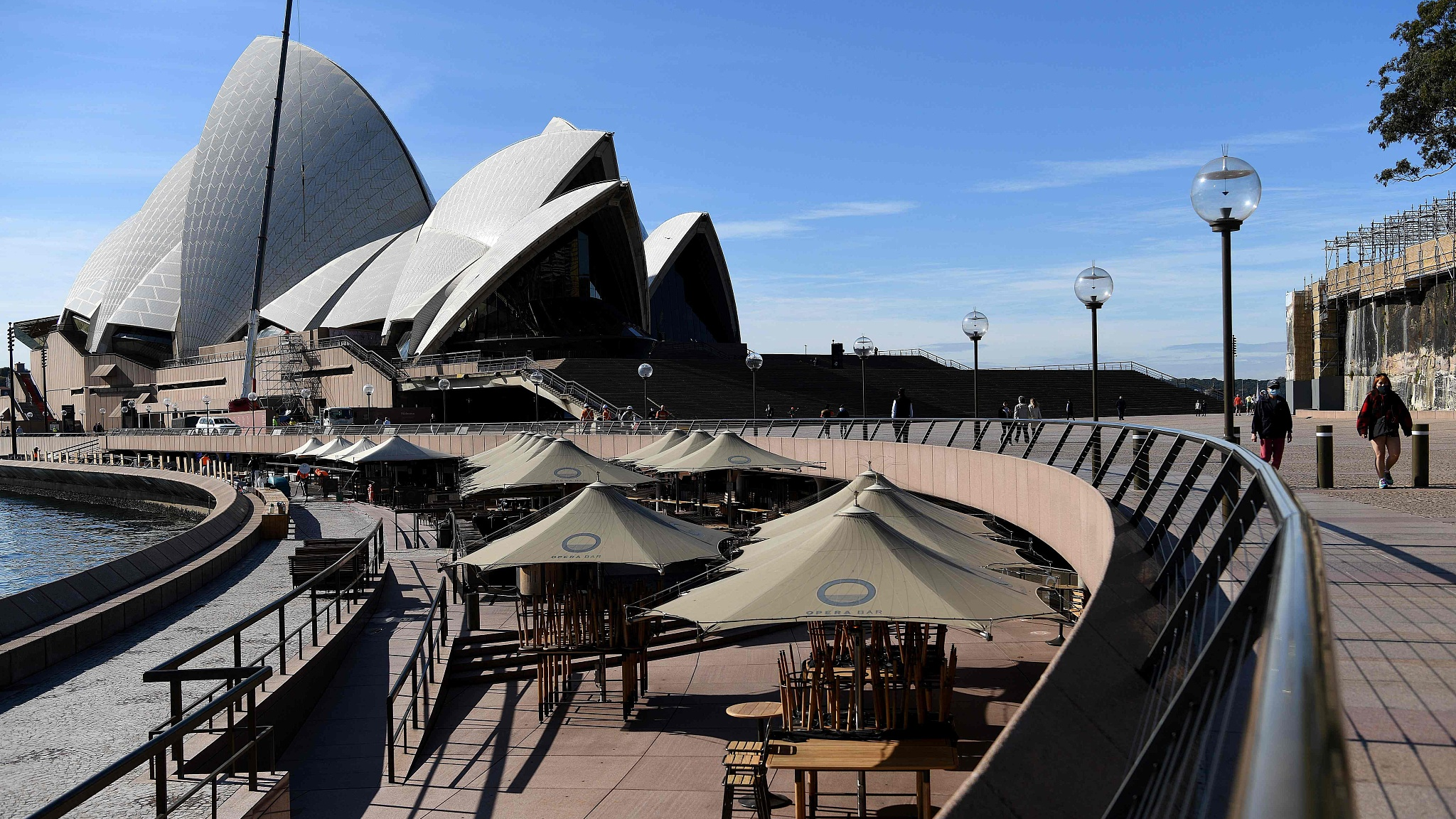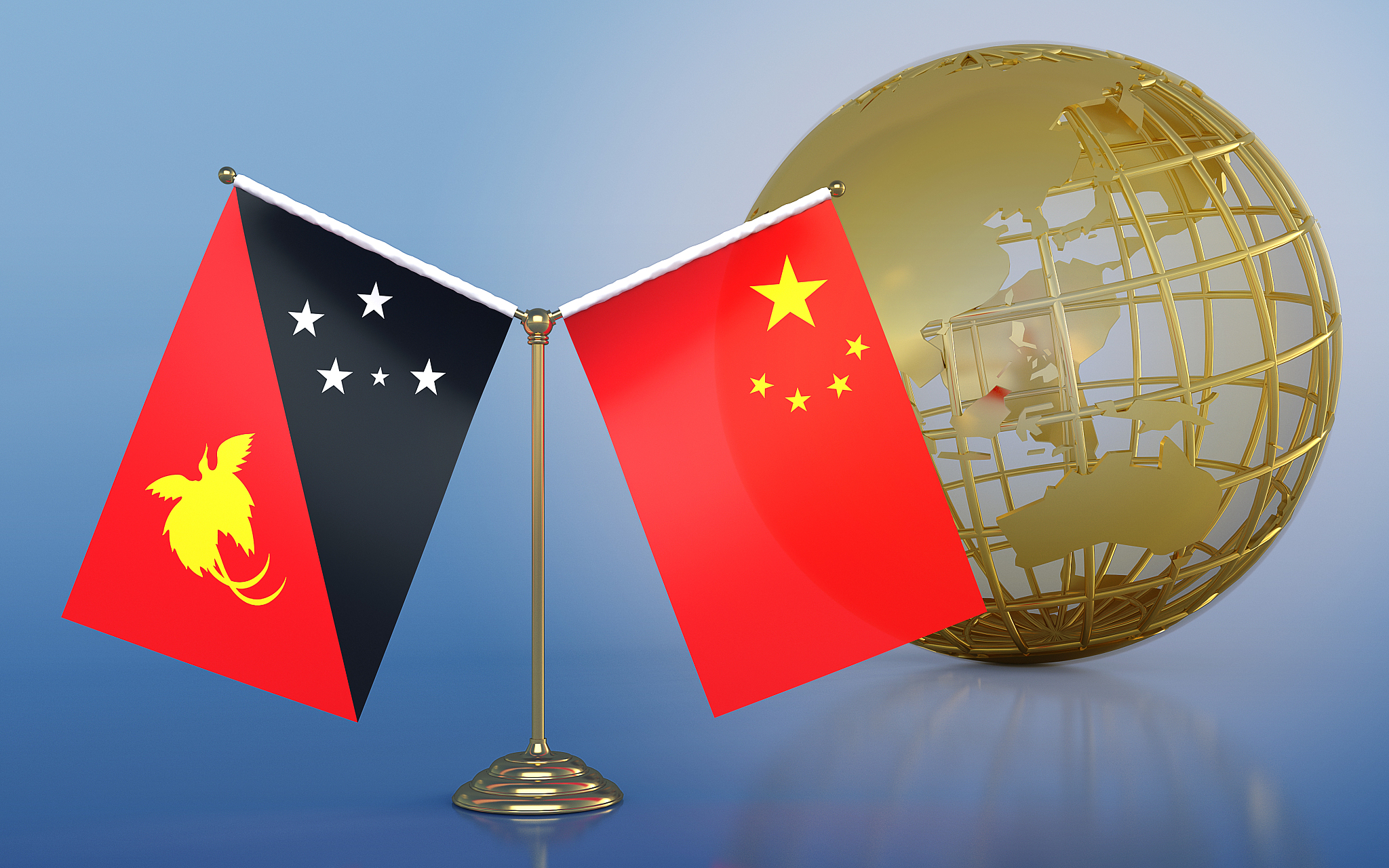
Editor's note: Hamzah Rifaat Hussain is a former visiting fellow at the Stimson Center in Washington, D.C. and serves as an assistant research associate at the Islamabad Policy Research Institute (IPRI) in Pakistan. He specializes in conflict resolution dynamics and bilateral relations between states. The article reflects the author's opinions and not necessarily the views of CGTN.
As the world braces for a potential fourth wave of the COVID-19 pandemic with the lingering Delta variant sweeping populations in Europe, swift and unconditional inoculations are a prerequisite for mitigating its spread. Amid this, Australia is engaging in reckless political manipulation of vaccination efforts in the Pacific by leveraging political differences and employing political scoring against Beijing when nations in the region are struggling to breathe. The result is that genuine vaccination efforts in impoverished nations such as Papua New Guinea (PNG) will be compromised, which is an affront to unconditional access and international norms.
In essence, the PNG case demonstrates that Australia has shelved the idea of divorcing politics from pandemic relief operations that are supposed to be grounded in humanitarianism and has instead sought to undermine China's apolitical vaccination provision in the Pacific. There is also blatant disregard for bilateral relationships underpinning Chinese munificence to countries such as PNG, Kiribati and Tuvalu.
Yet, Australia continues to be adamant in undercutting unconditional access to gain political mileage by planting consultants in the PNG to stymie the smooth flow of Chinese vaccines despite the fact that these vaccines have been endorsed by WHO and are being provided to countries across Asia and Africa of which the latter has borne the brunt of horrendous vaccine inequities.
Such a shallow approach entails that lesser developed countries requiring unfettered access will be denied their right, due to political adventurism and politics of intimidation. Undercutting the provision of Chinese vaccines is also a travesty for the entire Pacific region of which many countries have adopted an official policy of non-alignment which is even more relevant in the current pandemic environment. Why then, should one country attempt to undermine vaccine cooperation between others? Australia clearly doesn't have an answer.

Canberra's rebuttal is based on denial and disproportionate emphasis on its stellar record of providing high quality healthcare and vaccine support as mentioned by its minister for international development in the Asia Pacific, Zed Seselja. That, however, is not the issue here. The issue is how one country has chosen to jeopardize inoculations grounded in universality, sovereign government agreements and unconditional support based on international norms for political power play. Instead of challenging the Chinese narrative on the Pacific upon fact, Australia has resorted to touting its own inoculation efforts which mirror undue corporatization and strengthen the narrative that unwarranted competition is being pursued in the Pacific by Australia itself.
The effects of such politicization, however, will be felt gravely by the populations of the respective countries in the region where bullying downplays the significance of saving lives and promoting humanitarianism which Australia has often advocated for in international forms but seldom followed up on. Canberra's approach as mentioned by Chinese Foreign Ministry spokesman Wang Wenbin is an affront to the basic humanitarian spirit which guides inoculation efforts and is a glaring example of interference in sovereign affairs with hollow counterarguments of misrepresentation of facts.
The provision of alternatives to Chinese vaccines in countries such as Kiribati, PNG and Tuvalu fails to explain why consultants are being planted in the islands to stop Chinese vaccine inflows. In all actuality, the practice of vaccine intimidation stems from developments in May where the moment the WHO approved China's Sinopharm and was launched in the Pacific islands despite not being administered in Australia, it coincided with Canberra launching Astrazeneca jabs coupled with planting consultants. The difference in approach is pretty clear.
The PNG has clearly stated that any support will be welcomed unconditionally and in China's case, the provision of millions of doses of Sinopharm across the world in various regions is not being complemented with planting agents or using intelligence operatives to undercut inoculation efforts. There should be no geopolitical purpose beyond humanitarian relief in the Pacific region and beyond yet. Australia's attempt at sabotaging vaccines in the region suggests otherwise.
(If you want to contribute and have specific expertise, please contact us at opinions@cgtn.com.)

